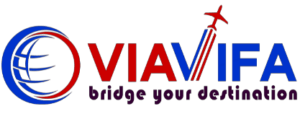Job Search Strategies for Foreigners in Europe

Securing a job in Europe can be a rewarding journey, offering access to a vibrant work culture, diverse experiences, and professional growth. As a foreigner, finding the right opportunity may require strategic planning and knowledge of regional job market trends. Here’s a step-by-step guide to help you navigate your job search in Europe effectively.
ConsultantsEurope has emerged as a dynamic job market for skilled professionals from around the globe, with opportunities across industries such as tech, healthcare, finance, and engineering. However, navigating the European job market as a foreigner can be challenging due to regional regulations, language barriers, and varied job application procedures.
Why Work in Europe?
Working in Europe brings various benefits, such as:
- Diverse job opportunities across sectors, with a growing demand for foreign professionals in technology, healthcare, and engineering.
- High living standards with excellent work-life balance, healthcare, and social benefits.
- Cultural exposure to diverse cultures and languages enriches personal and professional experiences.
Step-by-Step Job Search Strategies for Foreigners in Europe
Research the European Job Market
Understanding the economic landscape and in-demand industries is essential to aligning your career aspirations with available opportunities in Europe. Each country in Europe has unique economic strengths and labor needs, so conducting market research will give you a clearer idea of where your skills may be most valued.
Key Steps for Market Research:
- Identify high-demand sectors: Research sectors like technology, healthcare, engineering, and finance.
- Understand Regional Variations: Job availability and requirements vary significantly by country.
- Stay updated on industry trends: Following trends in emerging sectors can reveal more opportunities.
Understand Work Eligibility and Visa Requirements
Europe’s job market is diverse, with each country having unique economic strengths and labor demands. Some regions have strong industries in technology, healthcare, finance, and engineering, while others are known for tourism and manufacturing. Researching the market trends in each country is vital to aligning your skills with demand.
Pro Tips:
- Identify countries with high demand for your profession.
- Determine the appropriate work visa based on your qualifications, job offer, and the country’s requirements. Common options include the EU Blue Card, Schengen Work Visa, and National Long-Term Work Visas.
- Inquire if the employer offers visa sponsorship or if you qualify for the EU Blue Card, which facilitates skilled migration to European countries.
- Stay informed on emerging sectors and regional skill shortages.
Prepare Your Resume and Cover Letter
European employers value tailored resumes that clearly outline relevant skills, accomplishments, and experiences. A well-crafted, concise CV (typically one to two pages) that meets regional standards can help you stand out. Translating your resume into the local language, if required, may also enhance its appeal.
Tips for Optimizing Your Resume:
- Personal Information: Include your name, contact details, and nationality.
- Professional Summary: Provide a brief overview of your skills and career accomplishments.
- Work Experience: Start with your most recent job, using bullet points to highlight relevant achievements.
- Education and Certifications: List degrees and certifications, focusing on those required or relevant to your field.
- Languages and technical skills: Emphasize language proficiency and industry-specific software skills.
- Highlight Transferable Skills: Focus on skills valued by European employers, such as cross-cultural adaptability, language proficiency, and problem-solving abilities.
- Adjust for EU Format: European employers often prefer the Europass CV format. Tailor your resume to meet regional expectations in skills and qualifications.
- Multilingual Applications: If targeting a country with a non-English language, consider translating your CV and cover letter for greater readability and market appeal.
Use European Job Portals and Networking Platforms
Online job boards and networking platforms like LinkedIn, Glassdoor, and Eurojobs are essential for finding job openings across Europe. Additionally, joining industry-specific networks and groups can provide valuable insights into job opportunities and market trends.
- EURES: An EU platform by the European Commission that connects job seekers with European employers, specifically supporting cross-border job seekers.
- LinkedIn: Use LinkedIn’s advanced filters to find country-specific job postings and join industry-specific groups to expand your network.
- Indeed and Glassdoor Europe: Comprehensive job boards with roles across various industries, actively used by employers hiring foreign professionals.
- Industry-Specific Platforms: Explore niche websites like Tech Jobs EU for tech roles and Jobs in Healthcare for healthcare positions to find more targeted opportunities.
- Networking: Attend virtual or local industry meetups and connect with recruiters and employers through LinkedIn networks to enhance your job search.
Tap into Online and In-Person Networking Opportunities
Networking is a powerful job search strategy in Europe. Attend job fairs, seminars, and professional meetups to connect directly with employers. Many European countries host international job fairs and online career events, particularly for high-demand industries. Joining professional groups can also open doors to potential job opportunities.
Networking Tips:
- Participate in Industry Events: Attend both virtual and in-person events related to your field to expand your network.
- Join LinkedIn Groups: Engage with professionals in your industry by joining relevant LinkedIn groups.
- Connect with Alumni: Reach out to alumni from your university or individuals with similar backgrounds for networking opportunities.
- Professional Associations: Join European professional associations or expatriate groups in your field to find mentorship, networking events, and potential job leads.
- Attend European Job Fairs: Many cities host international job fairs, such as European Job Days, where you can meet recruiters and employers face-to-face.
- Optimize Your LinkedIn Profile: Ensure your profile is fully optimized with keywords relevant to your industry and the European market, highlighting your international experience and multilingual skills.
Apply for a Work Visa or Permit
Securing a valid work visa is essential before starting employment in Europe. Each country has different visa requirements based on qualifications, job type, and duration of stay. Many European countries offer various work permits, including the EU Blue Card for highly skilled professionals, but the eligibility criteria can vary significantly.
Types of Work Visas in Europe:
- EU Blue Card: Designed for highly skilled non-EU citizens, this work permit facilitates employment in the EU.
- National Long-Term Work Visas: Country-specific permits often requiring employer sponsorship, tailored to meet national labor needs.
- Seasonal Work Visas: Short-term permits for temporary roles in specific sectors such as agriculture and tourism.
Prepare for Job Interview Process with European Employers
Interview styles and expectations vary across Europe, making it essential to understand local cultural nuances. Employers often expect candidates to be well-prepared, straightforward, and respectful of time. Understanding these expectations can help you make a strong impression during interviews.
Interview preparation tips:
- Research Company Culture: Understand the values and work culture of the employer to align your responses with their expectations.
- Understand Local Interview Etiquette: Politeness, punctuality, professionalism, and clear communication are crucial in European interviews.
- Prepare for Common Questions: Be ready to discuss your motivations, experiences, and language proficiency. Many European interviews focus on behavioral and competency-based questions, so prepare to share real-life scenarios showcasing your problem-solving and teamwork skills.
- Familiarize yourself with local interview practices: Interview formats may vary from structured panels to casual conversations, so research the typical process in the country where you’re applying.
- Practice Common Questions: Rehearse your answers to typical interview questions to enhance your confidence and delivery.
Understand Regional Language and Cultural Expectations
While many companies in Europe, especially multinational corporations, use English, learning the local language can significantly enhance your job prospects. Even a basic understanding demonstrates your commitment to adapting to the local culture, making you a more attractive candidate and broadening your employment options.
Language Learning Tips:
- Take Beginner Classes: Enroll in beginner-level classes for the local language of your target country.
- Use Language Learning Apps: Regularly practice your language skills using apps designed for language learning.
- Join Language Exchange Groups: Participate in local language exchange programs for conversation practice and consistent learning.
- Boost Employability: Gaining at least conversational proficiency in the local language can enhance your employability, especially in countries like Germany, France, and Italy, where many companies operate in their native language.
- Adapt to Cultural Norms: Research each country’s work culture, as practices can vary significantly between Southern and Northern Europe. Understanding these nuances can be advantageous during interviews and on the job.
Consider Internships or Short-Term Work for Experience
If securing a full-time position proves challenging initially, consider internships or short-term contracts. These experiences offer valuable insight into European work culture, help you build your professional network, and often lead to permanent positions.
How to Find Internships in Europe
- Look for internship programs: Seek programs that sponsor non-EU citizens to ensure you are eligible to apply.
- Explore Dedicated Internship Platforms: Use websites focused on international internships, such as ErasmusIntern and GoAbroad, to find suitable opportunities.
- Apply to Multinational Companies: Target companies with global internship programs that actively hire interns and temporary workers.
Stay Persistent and Adaptable
Finding the right job in a foreign country requires time, persistence, and flexibility. Stay motivated, continuously refine your approach, and remain open to exploring various opportunities. Many successful expatriates started with internships or short-term contracts before securing their ideal roles.
Securing a job abroad demands resilience and a positive attitude. Flexibility in your job search approach is essential; even if your dream job isn’t immediately available, temporary or contract positions can provide a valuable foothold.
Stay informed about Post-Brexit Changes
If you are targeting jobs in the UK, note the changes in immigration policies post-Brexit, which affect work permits and eligibility. Familiarize yourself with the UK’s Skilled Worker Visa process.Why Choose US for Your European Job Search?
VIAVIFA is committed to helping international job seekers navigate the European job market with ease. Our comprehensive services include:
- Personalized Career Counseling: Receive customized advice on the European job market, recommended industries, and regions best suited to your qualifications.
- Application Assistance: Our team supports CV and cover letter localization, ensuring your application materials meet European standards.
- Visa and Immigration Guidance: We assist in choosing the correct visa type, understanding eligibility requirements, and guiding you through the entire application process.
- Interview Preparation: Our experts provide tailored interview coaching to help you prepare for country-specific interview practices.
- Post-Arrival Support: From language training recommendations to cultural orientation, we help you transition smoothly into European life.
Conclusion
Landing a job in Europe as a foreigner is achievable with the right strategies and preparation. Understanding the local job market, cultural expectations, and visa regulations is crucial. By following these steps and leveraging the expertise of VIAVIFA Global Immigration Services, you’ll be well-equipped to navigate Europe’s diverse job landscape with confidence. From resume optimization and market research to visa applications and interview coaching, we are here to support you at every stage of your journey. Embark on this rewarding career path with the right resources and guidance.
